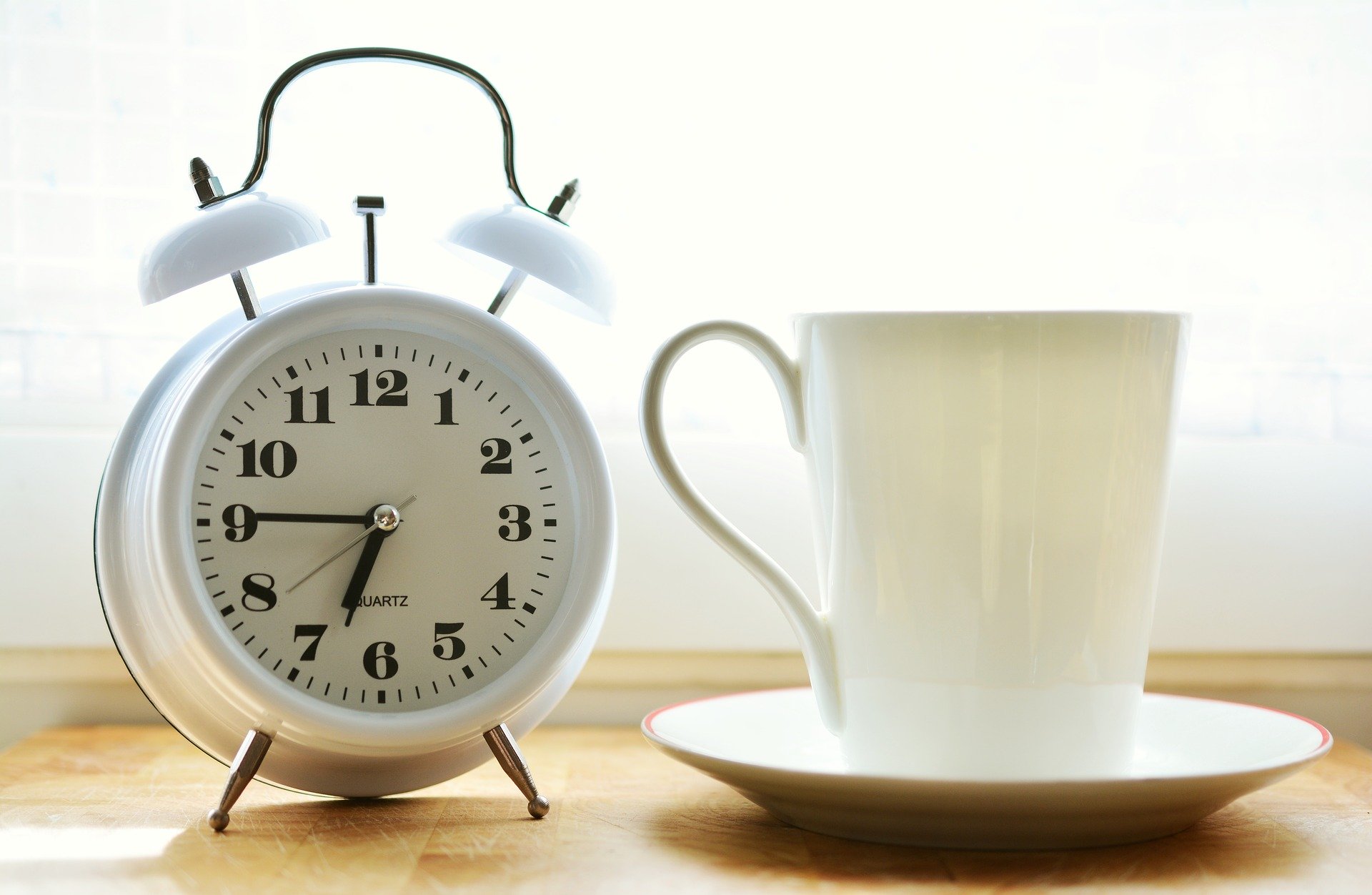A couple of years ago, I was totally on board with the early bird trend.
I read My Morning Routine by Benjamin Spall and Michael Xander, and drew inspiration from all those successful people who got up at the crack of dawn to get a jump on chasing down their goals.
But I’ve since come to learn that there’s something even more conducive to a successful life:
Adequate sleep.
Sleep is the foundation for healthy living. Without enough rest, attempting to follow through with other healthy habits – such as exercise and healthy eating – is like trying to build a house made of toothpicks on quicksand.
How My Early Mornings Resulted in a Different Kind of Wakeup Call
I faithfully subscribed to the early bird theory for the better part of two years, getting up between 5:45 and 6 a.m. so that I could get a workout in before starting my workday.
And for a while, it was great; I was exercising regularly and feeling motivated.
But after a while, something strange happened.
Instead of feeling energized after my early a.m. workouts, I felt drained. The more I forced myself to get up early and workout, the more run down I felt.
Worse still, my exercise sessions didn’t seem to be yielding the same results as before.
I couldn’t figure out what was happening.
Then one day I took a look at my neglected AutoSleep app, (which had been recording my sleep habits via my Apple Watch in the background for months) and it suddenly became obvious:
My commitment to an early morning routine was coming at the expense of a full night’s sleep.
It wasn’t just a matter of going to bed early enough. I would go to bed at 9:30 p.m. but lay awake staring at the ceiling, sometimes for hours.
Yet I would still force myself to get up with my alarm, even though that sometimes meant I was only getting 5 or 6 hours of sleep.
As it turns out, I wasn’t paying attention to my body’s natural sleep cycle which can actually make early mornings counterproductive.
So I surrendered my early a.m. exercise routine in order to start getting a solid 8 hours of sleep, thinking I had condemned myself to the land of tight pants.
But to my surprise, the opposite happened; in the time since I’ve started sleeping in, my fitness and energy levels are at an all-time high!
The lesson?
When you start prioritizing sleep, everything improves, including your fitness level. Here’s how:
Higher Energy Levels for Exercising Later in the Day
I used to loathe working out after work because by the time I clocked out at the end of the day, I would feel so mentally drained that all I wanted to do was make a beeline for the couch. (And perhaps pass a glass of wine along the way.)
But when I started getting enough shuteye at night, I found I had both the mental and physical energy to exercise after work.
That makes sense since too little sleep was likely the catalyst for that dreaded 2-4 pm energy slump I was experiencing each day.
Fewer Hunger Pangs and Less Stress-Eating
I had been attributing those mid-morning hunger pangs and late afternoon snack-cravings to my early morning workouts. But instead of reaching for something healthy and satiating, like Greek yogurt or an apple, I was compelled to nosh on cookies and potato chips.
Yet, as soon as I started getting my 8 hours in, those hunger pangs were far less often and when I did have them, I was able to easily resist the Ruffles in lieu of something more nutritious.
Once again, science has an explanation for this phenomenon: sleep deprivation can cause both hunger and cravings for unhealthy foods, according to studies.
Proper Recovery from Intense Workouts
Something I had a hard time wrapping my head around for a long time is that it’s just as important to rest as it is to exercise. Because when you workout isn’t actually when you become fitter.
It’s while you’re catching your zees that the transformation occurs!
When we sleep, that’s when our brain secretes the growth hormone that repairs and builds muscle.
So by forcing myself to wake up for exercise before I was fully rested I was actually shooting myself in the foot!
It wasn’t until I changed my sleeping habits that I finally broke through my fitness plateau.
Conclusion
Does this mean that an early morning routine isn’t a good idea?
Not at all; there are still great benefits that come with being an early bird.
But.
You cannot sacrifice sleep without consequences.
If you are able to get enough quality sleep and still wake up at 5 am feeling great, kudos!
As for myself, I’ve ditched early for “earlyish”, and I’m both happier and fitter for it.
Put sleep first, and I think you’ll find that everything else falls into place much more easily.
The key here is that you need to do the things that are healthy for you. Of course, continue to learn and be inspired by others.
But also make sure you listen to your body; it will rarely steer your wrong.
For more fitness tips, visit thefitcareerist.com.


